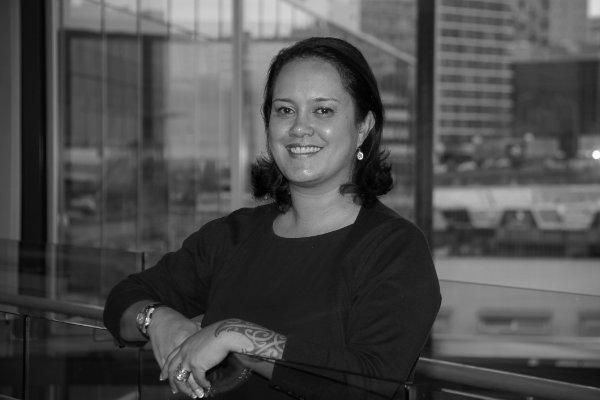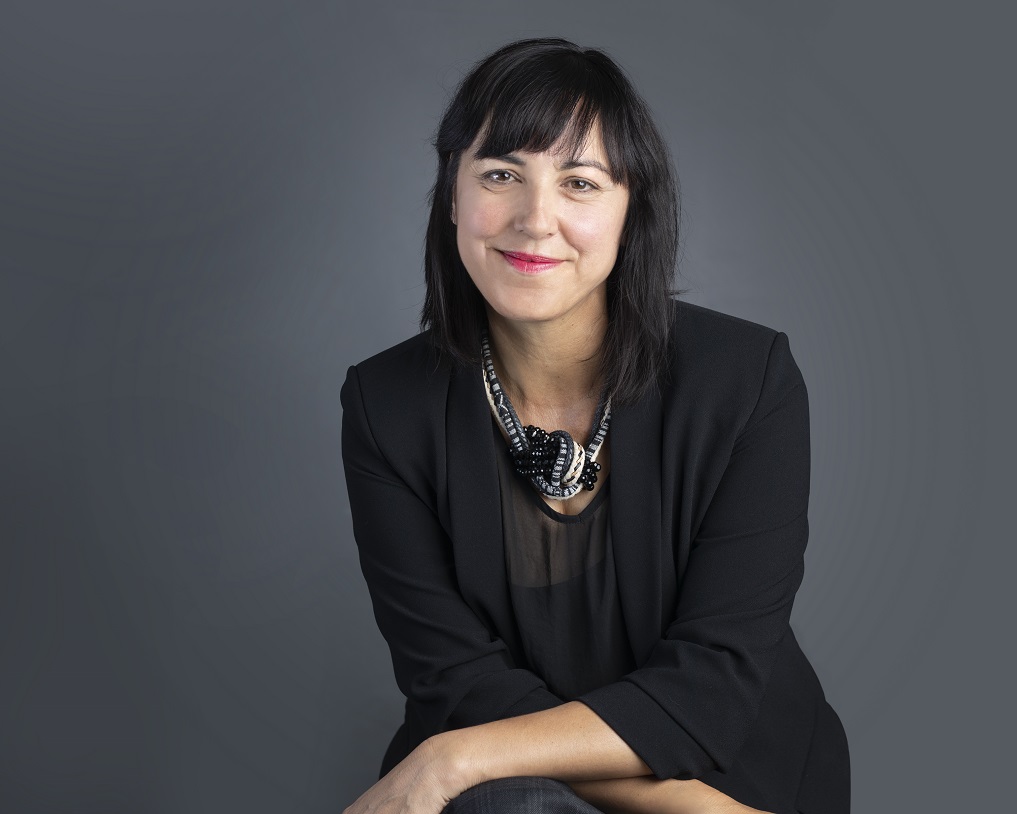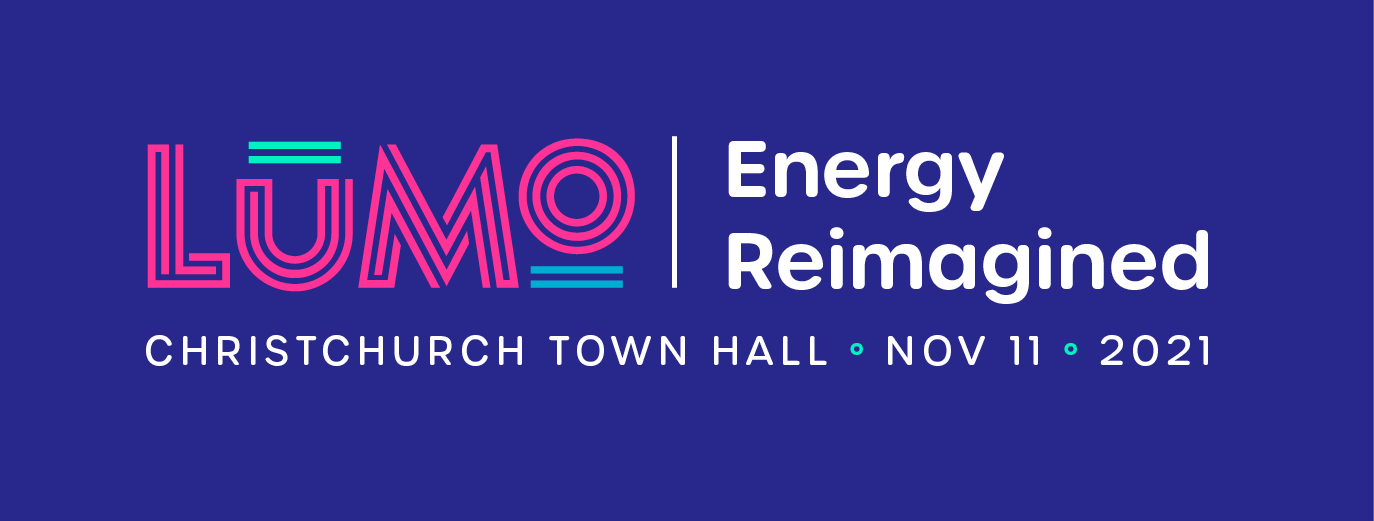Big ideas on the future of energy coming to LUMO symposiumSponsored
As the world gets warmer and the tech gets cooler, what role will energy play in our sustainable future? LUMO is bringing together a range of speakers to explore this question through the intersection of energy, humanity and technology. It provides a platform to challenge the status quo and shift the national narrative of energy “so that it becomes a sector that all New Zealanders want to be a part of,” says organiser Dee Anderson.
LUMO is being hosted by Energy Academy, which was born out of electricity distribution company Orion Group’s commitment to “powering a cleaner and brighter future”.
Topics of conversation include humanity and energy, kaitiakitanga, the solar debate, future skills, climate change and community ownership.
Twelve LUMO speakers have been announced, with many more to come.
LUMO speakers Hermione McCallum-Haire, Lee Gardiner, Tim Hawkey and Ezra Hirawani spoke to the Energy Academy about their kaupapa, ideas and hopes for the future of energy.
Hermione McCallum-Haire, (Ngāti Tūwharetoa, Ngāti Maniapoto, Ngāti Raukawa, Ngāti Hāua), Ngā Wai a Te Tūī Māori & Indigenous Research Centre, Unitec Institute of Technology, and Te Mangarautawhiri a Pukehou Trust. Māori Researcher and Project Manager

As a change-maker, Hermione champions indigeneity with mātauranga Māori and emerging disruptive technology to challenge energy inequities.
ENERGY ACADEMY: Tell us about your kaupapa.
HM: For three decades, growing up and living in the King Country has meant that we have had to pay two power bills – one to our power supplier and the other to the company that owns the lines. Often the cost of the use of the line exceeds the cost of the actual power we have used, and in a region that holds one of the lowest socio-economic statistics, power poverty is a reality that stands in the way of flourishing whānau (families) and hāpori (community).
Our family trust, Te Mangarautawhiri a Pukehou, has partnered with Ngā Wai ā Te Tūī, Māori and Indigenous Research Centre, to research alternative off-grid renewable energy options that can unlock the potential of our smaller and more isolated communities to have autonomy over power generation and distribution.
The project, Hihiko o Mangarautawhiri: Power sovereignty for a prosperous whānau and hapū (funded by MBIE), has afforded us the privilege to work with our own whānau and hapū, Ngāti Hinemihi, to understand the aspirations of what energy generation looks like in a te ao Māori context.
By utilising kaupapa Māori research methodologies and mātauranga Māori, we know that we must look at multiple energy generation options (e.g. wind, solar, hydro, bio), and ensure that we invest in hardware that can be reused, recycled and repurposed. Māori have always been astute pragmatists when it comes to decisions that impact on people and place, and today is no different. We understand the power of authentic partnerships and are looking at Tangata Whenua and Tangata Tiriti collaborations that will enhance the mauri (life essence) of Te Taiao (Earth).
What role should the energy sector play in your field of work?
Today, almost all Māori land is Māori freehold land. There are about 1.47 million hectares of Māori freehold land, which makes up roughly 5 per cent of all land in Aotearoa, so there is an abundance of opportunities for renewable energy generation right there.
I hope to see a supportive and inclusive energy sector that respects our cultural values and our connection to the environment as kaitiaki. Māori have been omitted from this sector, so it would be amazing to see mentoring relationships and partnerships that allow us to grow and sustain whānau and hapū.
Transformative change can occur when mātauranga Māori is embraced, as it is an under-developed and often overlooked opportunity. We want to be seen as partners, not as competitors, or, if not, designers of our own systems and technologies that will create power sovereignty and equity for all.
How important is the energy sector in meeting current challenges faced by communities/the environment?
Fun fact: The largest source of planet-warming emissions is energy consumption for industrial and domestic purposes and, according to the International Energy Agency, two-thirds of global greenhouse gas emissions are associated with fossil fuel use for electricity, transportation, heating and industry.
Adán Ramirez Sánchez, a 23-year-old Mexican biotechnologist, found a solution in algae. His invention – intelligent solar bio-panels made of microalgae and carbon nanoparticles – generates clean energy and oxygen while absorbing carbon dioxide. That means they combine nature with technology to clean the air while generating electricity.
Here in Aotearoa, there needs to be more investment in the sector to explore and grow technologies that are less impactful on our environment. We have an opportunity and an obligation to grow the minds and skills of our rangatahi (youth) to create and innovate systems that will not only help our economy thrive but also enable us to become world leaders in the cleantech space.
We need the energy sector to drive these changes from the grass(flax)-roots level, right up to policy and legislation, and the best way for us to do this is by doing it together. Come to our marae and tell us what support you need and we will do the same. There is a whakatauki (Māori proverb) that has guided our philosophy:
Mā te hau matao o Tongariro ka makariri te tinana, mā te makariri te tinana ka wiri te kiri, mā te wiri te kiri te tangata, mā te piri o te tangata ka ora te iwi.
– The winds of Tongariro chill the body. A cold body makes the skin shiver. When the skin shivers, the people unite. When the people unite, they thrive.
What are your hopes for the future?
When I think of our own whānau land blocks, which are comprised of steep ridges and hilly slopes and cloudless summer skies, I can see endless possibilities for a more sustainable and equitable Aotearoa - one that allows my small rural community to thrive, and for those of us who have had to move away from our papakāinga (communal Māori land), to have the opportunity to move out of the cities and back to our homelands.
I see our marae humming with vibrancy, an ecosystem of self-sustainability, a-tinana, a-wairua (both physically and spiritually). I see a place where, with the touch of an app, I can route my excess energy over to my neighbour, and also to my Aunty who lives in the next town. I see our rangatahi innovating and engineering emerging disruptive technologies that will benefit all whānau in Aotearoa. And I see an Aotearoa that is ethically powered by 100 per cent renewable energy. Ngā mihi nui ki a koutou katoa.
Lee Gardiner, Head of Human Potential, Connetics

Lee is currently the Head of Human Potential at the Orion NZ electricity services subsidiary, Connetics. She holds a law degree from the University of Canterbury and has held executive positions for 20+ years in the areas of HR, health & safety and marketing & communications.
Lee has extensive experience in privately held, publicly listed and public sector organisations. Additionally, she worked for eight years in Canada and held the position of associate executive director for a federal government not-for-profit focussed on improving Aboriginal education in British Columbia. Lee is of Ngäti Tuwharetoa descent. She assumed her first intern governance role with the Citycare Board in December 2020.
ENERGY ACADEMY: Tell us about your kaupapa.
LG: Connetics is the contracting subsidiary of the Orion Group. We deliver full spectrum services from design, build and maintenance and we are a key partner in achieving the Orion Group’s purpose of powering a cleaner and brighter future.
I believe that our design and engineering services will be critical to the development and delivery of cutting edge future energy solutions. Like many industries across Aotearoa, the energy sector will be competing for future talent who will bring passion and capability, fresh perspectives and new ways of thinking plus new expectations of their employers.
Our kaupapa is to ensure that we are readying ourselves for this new wave of talent and that we are positioned to attract, grow and retain this talent which needs to reflect the wonderful diversity of this country. One particular focus is on appealing to rangatahi and current and emerging Māori workers to all disciplines in our organisation.
What role should the energy sector play in your field of work?
We have been working with the EEA and Tokona Te Raki on how the energy/engineering sector can better embrace rangatahi and Māori talent. I think that if we try and chip away at this mahi as singular entities – competing for talent, “acquiring” one another’s talent – then we will be in the same circular situation we have been in for decades.
The Energy Academy has a goal of supporting the energy sector with growing and sharing capability in unique and diverse ways; that may be perceived as challenging for many traditional operators.
What the energy sector could do for our kaupapa is to be open to collaborate on talent, capability building and industry resourcing to ensure that all New Zealanders benefit from the technology and innovation that will be upon us in the next 5-10 years.
How important is the energy sector in meeting current challenges faced by communities/the environment?
The energy sector is hugely critical to society, and our communities, and we need to ensure that it is seen as a viable, desirable and exciting place for people to deliver their mahi. Energy has a huge role to play in sustainability, environmental protection, achieving reduced carbon emissions and lowering its costs to consumers. The future energy solutions that we can deliver like utility scale solar (large solar farms established by EDBs as one potential redress for energy poverty), green hydrogen solutions, electric vehicles etc. have the potential to change the way we live.
The current and emerging workforce needs purpose in their mahi so if the sector can show clear purpose – that is not solely related to asset resilience and financial returns – but to democratic access to affordable clean energy then we will have a greater chance of success in this area.
What are your hopes for the future?
That the energy sector leads the way in inclusion and diversity of thought and perspective to solve the emerging challenges and to take advantage of the great opportunities that the near future presents. This means attracting people of different genders, faiths, sexual orientations, cultures, social demographics, ethnicities and opinions.
More importantly, that we do this through partnership and genuine collaboration with Māori stakeholders, our consumers and our communities to ensure that we are all in this same waka together.
Tim Hawkey, Co-Founder, Energy Bank

Tim (above left), a mechanical engineer, established EnergyBank in November 2019 with a single mission: to catalyse the economic decarbonisation of global electricity supplies.
Tim has a deep, lifelong exposure to the electricity industry. Before EnergyBank he ran his own design company, delivering on complex, high part count, custom manufactured mechanical assemblies in the US and Mexico. Tim has successfully built and led multiple teams in entrepreneurial innovation and pitching competitions.
Tim has built EnergyBank’s initial market, engineering, and financial models while also recruiting the founding team and successfully closing an oversubscribed $2.7 million seed round.
ENERGY ACADEMY: Tell us about your kaupapa.
TH: We are developing a low-cost, scalable electricity storage technology with very high round-trip efficiencies. We believe that there is massive ongoing innovation required to decarbonise the world. In this sense, creation cannot be indefinite and incremental – this is too slow. Civilisation needs hundreds of “Teslas.” Sci-fi must be made real.
What role should the energy sector play in your field of work?
Incumbents have a massive role in supporting the development of business models that enable significant technological breakthroughs. This requires blue-sky, future-hat-on thinking and relatively small commitments of time on their part. If they collaborate in developing these businesses cases, there will be ample venture capital available to fund the development of the underlying technologies. Broad collaboration is particularly crucial for those models stymied by the tragedy of the commons.
How important is the energy sector in meeting current challenges faced by communities/the environment?
Energy is the fundamental currency. It wards off entropy and underpins life and complex civilisation. Thus, the future supply and management of energy, particularly given our minimal future carbon budget, should be infrastructure priority number one for the next three decades.
What are your hopes for the future?
Accessible interstellar space travel for physical humans would be an admirable benchmark achievement for humanity.
Ezra Hirawani, CEO and Co-Founder, Nau Mai Rā

Ezra with long time friend and co-founder Ben Armstrong
Ezra Hirawani (Te Āti Haunui-a-Paparangi / Ngāti Rangi / Ngāpuhi / Ngāti Hako / Waikato Tainui) founded Nau Mai Rā with a mission to end power poverty and reconnect with his marae, iwi, and hapū.
ENERGY ACADEMY: Tell us about your kaupapa.
EZRA HIRAWANI: Nau Mai Rā is Aotearoa’s first kaupapa Māori energy retailer. Our core purpose is to eliminate power poverty through the spirit of manaakitanga. This includes delivering services to whānau off a highly efficient and cost effective SaaS platform which enables them to offer power rates that are highly competitive; returning a portion of each customer’s bill to the community through koha; enabling those struggling most with power hardship to access NMR’s “Whānau Fund”; and connecting whānau with agencies to assist creating healthier homes and better health outcomes.
What role should the energy sector play in your field of work?
We’re requesting that electricity generators commit to working together with energy retailers that represent vulnerable communities by providing them fair and affordable wholesale pricing. We’re requesting the New Zealand government require electricity generators to work together with energy retailers that represent vulnerable communities by providing fair and affordable wholesale pricing.
We’re also requesting the government guarantee that all whānau have sufficient energy to power their homes by nominating a last resort electricity retailer, which is one that operates in the spirit of manaakitanga and won't turn anyone away.
How important is the energy sector in meeting current challenges faced by communities/the environment?
Very important. Covid-19 has placed us in a unique position where we can “F5” the industry and refresh the way we do business. Instead of competing for everything, we need to read the writing on the wall and realise that “energy hardship” is a wrong that we, as participants, can fix. Enough passing the buck! Less talking, and more commitment to doing. If not, we will see bad debt increase; more whānau powerless and taxpayer money spent on post-trauma actions that could have been solved at the top of the cliff.
What are your hopes for the future?
We take all whānau on the sustainability hikoi. If we continue on the path we are on without change, vulnerable consumers will be disproportionally impacted and left behind. Our goal is to make sure no whānau is left behind, Māori or not.
Energy Academy is cultivating a movement of diverse thinkers and activators to harness energy’s potential to create a more prosperous, equitable and sustainable New Zealand.
LUMO is one of the Energy Academy’s platforms to promote new thinking, open up a new world of possibility and give permission to make things happen. It will be held at the Christchurch Town Hall on 11 November. Tickets are available at https://events.humanitix.com/lumo-energy-reimagined
